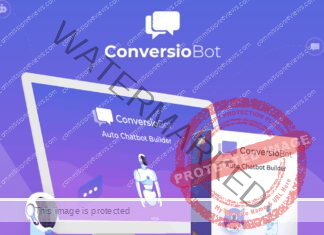Photo by ‘Barbara Zandoval’ on Unsplash.com
The Ultimate Guide to Starting an AI Automation Agency
Starting An AI Automation Agency
Starting an AI automation agency can play a crucial role in today’s rapidly evolving technological landscape. As businesses across industries seek to streamline their operations and improve efficiency, the demand for AI automation solutions has skyrocketed. These agencies specialize in developing and implementing artificial intelligence technologies to automate various tasks and processes, ultimately helping businesses save time, reduce costs, and increase productivity.
The purpose of this blog post is to provide a comprehensive guide for aspiring entrepreneurs looking to start their own AI automation agency. We will delve into the basics of AI automation, discuss the importance of choosing the right niche, explore strategies for building a strong team of AI experts, outline the key components of a business plan, provide insights on securing funding, highlight the importance of choosing the right tools and technologies, discuss effective marketing strategies, explore the benefits of partnerships and collaborations, address legal and ethical considerations, and provide strategies for scaling the agency for long-term success.
Understanding the Basics of AI Automation
AI automation refers to the use of artificial intelligence technologies to automate tasks and processes that were previously performed by humans. This involves the use of machine learning algorithms, natural language processing, computer vision, and other AI techniques to analyze data, make predictions, and perform actions without human intervention.
The benefits of AI automation are numerous. It can significantly improve efficiency by automating repetitive and time-consuming tasks, allowing employees to focus on more strategic and value-added activities. It can also reduce errors and improve accuracy by eliminating human biases and inconsistencies. Additionally, AI automation can enhance decision-making by analyzing large volumes of data and providing actionable insights in real-time.
AI automation is being implemented across various industries. In healthcare, AI-powered systems are being used to diagnose diseases, analyze medical images, and develop personalized treatment plans. In manufacturing, robots equipped with AI capabilities are automating assembly lines and improving production efficiency. In customer service, chatbots are being used to provide instant support and answer customer queries. These are just a few examples of how AI automation is transforming industries and revolutionizing the way businesses operate.
Identifying the Right Niche for Your AI Automation Agency
Choosing the right niche is crucial for the success of your AI automation agency. By specializing in a specific industry or application, you can position yourself as an expert and differentiate your agency from competitors. It is important to consider factors such as market demand, competition, and your own expertise and interests when selecting a niche.
Some examples of niches in AI automation include healthcare, finance, manufacturing, customer service, and marketing. In healthcare, for instance, you could focus on developing AI-powered solutions for medical imaging analysis or patient monitoring. In finance, you could specialize in developing algorithms for automated trading or fraud detection. By choosing a niche that aligns with your skills and interests, you can establish yourself as a trusted partner in that industry.
Building a Strong Team of AI Experts
Having a strong team of AI experts is essential for the success of your agency. These individuals will be responsible for developing and implementing AI solutions, so it is important to recruit top talent with the right skills and qualifications.
When hiring AI experts, look for individuals with a strong background in computer science, machine learning, and data analysis. They should have experience working with AI frameworks and tools such as TensorFlow, PyTorch, and scikit-learn. Additionally, they should possess strong problem-solving and critical thinking skills, as well as the ability to communicate complex concepts to non-technical stakeholders.
To attract and retain top talent, offer competitive salaries and benefits, provide opportunities for professional development and growth, and create a positive and inclusive work environment. Encourage collaboration and knowledge sharing among team members, and provide them with the necessary resources and tools to excel in their roles.
Developing a Comprehensive Business Plan for Your Agency
A well-crafted business plan is essential for the success of your AI automation agency. It serves as a roadmap for your business, outlining your goals, strategies, and financial projections.
A comprehensive business plan for an AI automation agency should include the following key components:
1. Executive Summary: This section provides an overview of your agency, including its mission, vision, and unique value proposition.
2. Company Description: This section provides detailed information about your agency, including its legal structure, location, and history. It also outlines your target market and competitive landscape.
3. Market Analysis: This section analyzes the market demand for AI automation solutions in your chosen niche. It includes information on market size, growth trends, and key competitors.
4. Services and Solutions: This section outlines the services and solutions your agency will offer. It should clearly define the value proposition of your offerings and explain how they will meet the needs of your target market.
5. Marketing and Sales Strategy: This section outlines your marketing and sales strategies for acquiring and retaining clients. It should include information on your target audience, pricing strategy, promotional activities, and distribution channels.
6. Operations and Management: This section provides details on the day-to-day operations of your agency, including staffing requirements, technology infrastructure, and key partnerships.
7. Financial Projections: This section includes financial forecasts for your agency, including revenue projections, expense estimates, and cash flow analysis. It should also outline your funding requirements and potential sources of funding.
8. Risk Analysis: This section identifies potential risks and challenges that may impact the success of your agency. It should include a contingency plan for mitigating these risks.
Securing Funding for Your AI Automation Agency
Securing funding is a critical step in starting and growing your AI automation agency. There are several sources of funding available for AI startups, including venture capital firms, angel investors, government grants, and crowdfunding platforms.
To increase your chances of securing funding, it is important to have a compelling pitch and a solid business plan. Clearly articulate the problem you are solving, the market opportunity, and your unique value proposition. Highlight your team’s expertise and track record, and provide evidence of market validation and customer traction.
When pitching to investors, be prepared to answer tough questions and address any concerns they may have. Demonstrate a deep understanding of your target market and competition, and explain how you plan to differentiate your agency and achieve sustainable growth.
Choosing the Right Tools and Technologies for Your Agency
Choosing the right tools and technologies is crucial for the success of your AI automation agency. There are a wide range of tools and technologies available for developing and implementing AI solutions, including AI frameworks, data analytics platforms, and cloud computing services.
When choosing tools and technologies, consider factors such as scalability, ease of use, compatibility with existing systems, and cost. It is also important to stay updated with the latest advancements in AI technology and continuously evaluate new tools and technologies that may enhance your agency’s capabilities.
Some popular tools and technologies in AI automation include TensorFlow, PyTorch, scikit-learn, Apache Spark, and Amazon Web Services (AWS). These platforms provide a wide range of functionalities for developing and deploying AI models, analyzing data, and managing infrastructure.
Creating Effective Marketing Strategies for Your Agency
Marketing plays a crucial role in the success of your AI automation agency. It helps you build brand awareness, generate leads, and acquire new clients. To create effective marketing campaigns, it is important to understand your target audience and their pain points, and tailor your messaging accordingly.
Some strategies for creating effective marketing campaigns include:
1. Content Marketing: Create high-quality content that educates and engages your target audience. This can include blog posts, whitepapers, case studies, and videos. Share this content on your website, social media channels, and industry forums to establish yourself as a thought leader in your niche.
2. Search Engine Optimization (SEO): Optimize your website and content for search engines to improve your visibility and organic traffic. Conduct keyword research to identify relevant keywords and incorporate them into your website copy and content.
3. Social Media Marketing: Leverage social media platforms such as LinkedIn, Twitter, and Facebook to connect with your target audience and promote your agency. Share industry news, insights, and success stories to engage your followers and build credibility.
4. Email Marketing: Build an email list of potential clients and send them regular newsletters and updates. Provide valuable content and offers to encourage engagement and conversions.
5. Thought Leadership: Speak at industry conferences, participate in panel discussions, and contribute to industry publications to establish yourself as a thought leader in your niche. This will help you build credibility and attract potential clients.
Establishing Partnerships and Collaborations with Other Businesses
Establishing partnerships and collaborations with other businesses can provide numerous benefits for your AI automation agency. It can help you expand your network, access new markets, share resources and expertise, and enhance your service offerings.
To find potential partners, attend industry events, join professional associations, and leverage your existing network. Look for businesses that complement your offerings and share similar values and goals. Approach potential partners with a clear value proposition and a win-win mindset.
Some examples of successful partnerships in AI automation include collaborations between AI startups and established technology companies, partnerships between AI agencies and consulting firms, and alliances between AI agencies and universities or research institutions. These partnerships can help drive innovation, accelerate growth, and create new opportunities for both parties involved.
Ensuring Compliance with Legal and Ethical Standards in AI Automation
As AI automation becomes more prevalent, it is important to ensure compliance with legal and ethical standards. AI technologies have the potential to impact individuals’ privacy, security, and well-being, so it is crucial to prioritize ethical considerations in the development and deployment of AI solutions.
Some legal and ethical considerations in AI automation include:
1. Privacy: Ensure that your AI solutions comply with data protection regulations and respect individuals’ privacy rights. Implement robust security measures to protect sensitive data and prevent unauthorized access.
2. Bias and Fairness: Be aware of potential biases in your AI models and algorithms, and take steps to mitigate them. Ensure that your AI solutions are fair and unbiased, and do not discriminate against individuals based on factors such as race, gender, or age.
3. Transparency: Be transparent about how your AI solutions work and the data they use. Provide clear explanations and documentation to help users understand the decision-making process of your AI models.
4. Accountability: Take responsibility for the outcomes of your AI solutions. Monitor their performance, address any issues or biases that arise, and continuously improve their accuracy and fairness.
By prioritizing legal and ethical considerations, you can build trust with your clients and stakeholders, and ensure the responsible and sustainable use of AI technologies.
Scaling Your AI Automation Agency for Long-Term Success
Scaling your AI automation agency is essential for long-term success. As the demand for AI solutions continues to grow, it is important to have a scalable business model that can accommodate increased workload and client base.
Some strategies for scaling your AI automation agency include:
1. Streamlining Operations: Continuously evaluate and optimize your internal processes to improve efficiency and reduce costs. Automate repetitive tasks, leverage cloud computing services for scalability, and invest in technologies that can streamline your operations.
2. Expanding Your Team: As your agency grows, you may need to hire additional AI experts and support staff. Ensure that you have a robust recruitment and onboarding process in place to attract top talent and integrate them into your team seamlessly.
3. Diversifying Your Offerings: Explore new markets and industries, and consider expanding your service offerings to meet the evolving needs of your clients. This can help you attract new clients and increase revenue streams.
4. Building Strategic Partnerships: Collaborate with other businesses to leverage their expertise, resources, and client base. This can help you expand your reach and access new markets without significant upfront investment.
5. Investing in Research and Development: Stay at the forefront of AI technology by investing in research and development. Continuously innovate and improve your offerings to stay ahead of the competition and meet the changing needs of your clients.
Conclusion
Starting an AI automation agency can be a rewarding and lucrative venture. By understanding the basics of AI automation, identifying the right niche, building a strong team, developing a comprehensive business plan, securing funding, choosing the right tools and technologies, creating effective marketing strategies, establishing partnerships, ensuring compliance with legal and ethical standards, and scaling your agency for long-term success, you can position yourself as a leader in the AI automation industry.
While the journey may be challenging, the potential rewards are immense. As businesses across industries continue to embrace AI automation, the demand for specialized agencies will only continue to grow. By staying ahead of the curve and delivering innovative solutions, you can carve out a successful niche in this exciting and rapidly evolving field by starting an ai automation agency today.



















